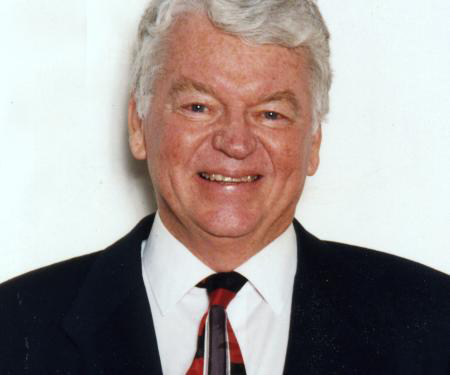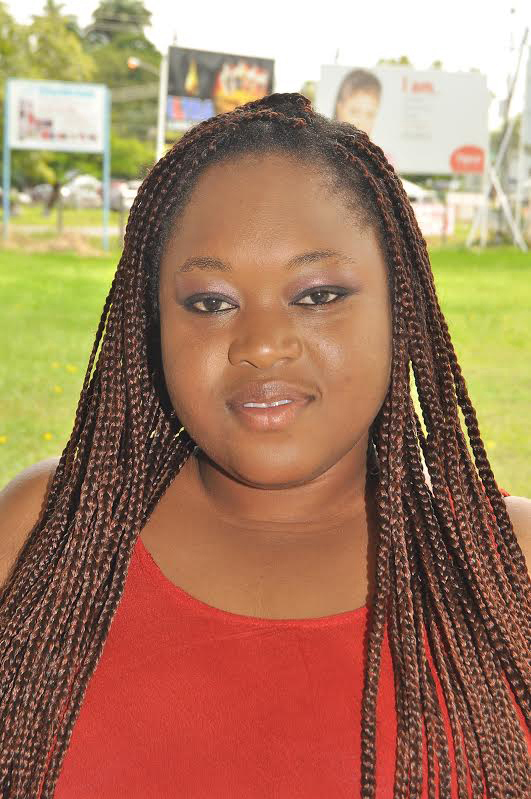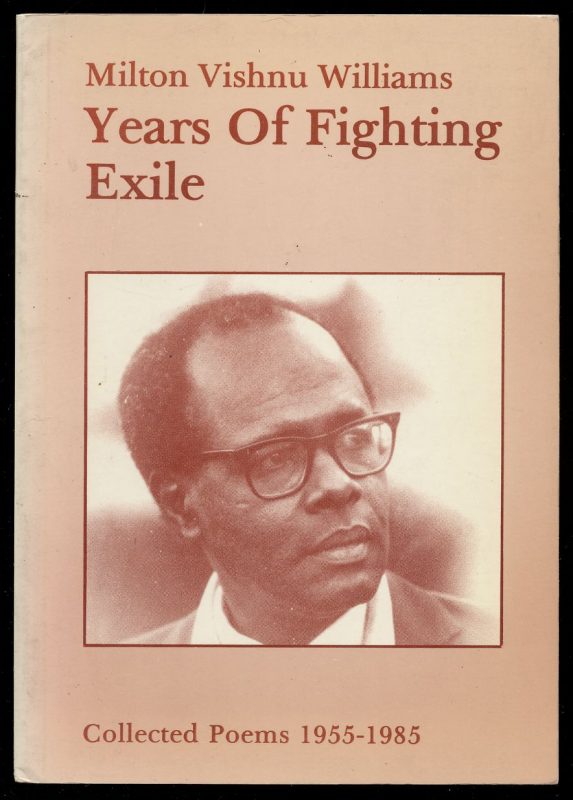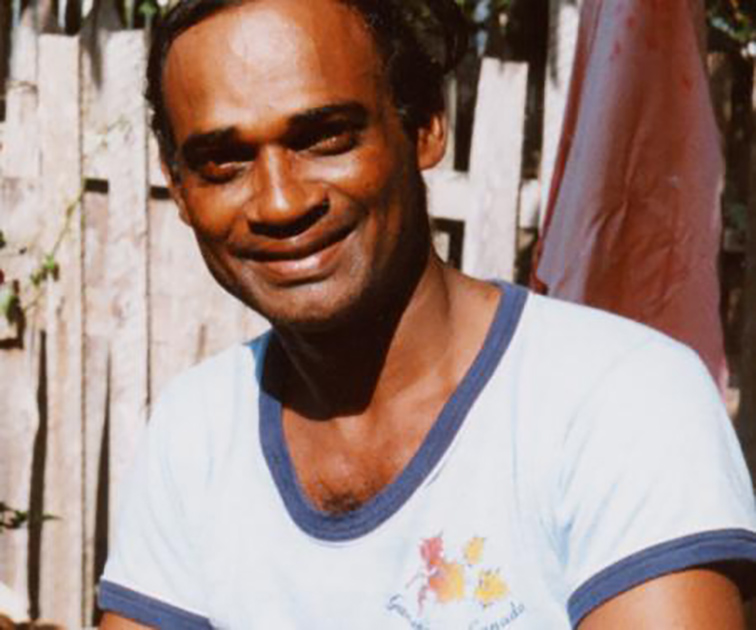
It is further interesting to note that Phagwah Day last Monday was really the culmination of the Holi/Phagwah season, which actually began with religious ritual observations 40 days before. During that period of 40 days the activities involved spiritual practices as well as Spring festivities: Chowtal singing, music and dance.
Easter, too, comes at the end of a 40-day period which begins each year with Ash Wednesday. Christians then observe the period of Lent, which comes to an end on Good Friday. That is also the end of Holy Week which leads into Easter Sunday, the day of the resurrection.
Today we note these two religious festivals, with the reminder that they also include secular revelry which emerged as extensions and outreach. We once again turn to the wonders of contemporary Guyanese poetry, which reflect Hinduism, if not Phagwah itself, and Christianity, with some close reference to Easter.
Take, for example, selections from Ian McDonald’s collection Not Quite Without A Moon, winner of the 2023 Guyana Prize for Poetry. Both poems “Prayer” and “Place of Worship” contain references to the imagery and symbols of Easter, such as the Christ and the cross. Ayanna Waddell is among the very new emerging poets and her “Blasphemy” directly engages the meaning of Easter with a persona wavering between disbelief and conversion. This was one of the poems performed in the recent ‘Musings of A Poet’ dramatic production by the National Drama Company (NDC). Waddell is one of the NDC poets.
Milton Vishnu Williams is perhaps a fairly forgotten Guyanese poet writing overseas, who had some ascendancy in the 1980s. “Oh! Prahalad Dedicated Day” has direct reference to Phagwah, and is a reminder that there are not multitudes of poems which do. It invokes Prince Prahalad, the boy at the centre of the Phagwah story. The boy who defied his father, the king, who thought he was God. Prahalad was revered for his faith and devotion. The poem describes a number of aspects of the Festival of Colours.
Rooplall Monar is a very special case, who came to the fore, also in the 1980s and rose to be a major Guyanese writer thereafter, having made an outstanding contribution to Guyanese East Indian literature. He may be joined with Sheik Sadeek as a writer who advanced treatment of the ethos of local Guyanese Indians in literature. Monar in “The Temple” laments hostility directed against what is sacred. These selections provide an indication of the established and the new.
Oh! Prahalad dedicated day
On the eve of this, Prahalad Dedicated Day,
abeer drench’d you come to me, Oh Indian girl,
with your face and hands all turned crimson,
with the previous colour of your dress undistinguishable,
and all your form reverberating an atmosphere of festivity.
You come and you sit and you sing for me, playing on the jaal,
the golden sound of your voice sending sweet stinging darts to my heart
then leaving it in exquisite jets clothed on wings of delight
the very voice felled star-apples and sapodillas from their trees,
the very voice ripened the cherries and gooseberries all around.
I took you and placed you under the cherry tree.
On its crest a redbreast was warbling her song.
Oh the sacredness of the sight!
I dare not utter a word to you
for suddenly it came upon me like the wind ruffling the trees,
this was the very meaning of Phagwah.
Milton Vishnu Williams
The Temple
Is this the temple where the jasmine
in the door-yard infused a godly quiet?
Where the blackwater pond,
its lilies fresh and blooming,
tempted fingers to the water,
tips of fingers to sanctify the forehand?
Where the deities were garlanded
in the temple’s outer sanctum
on a filigreed wooden pedestal?
Where the travellers found heaven,
Where one lotus offered upon the altar
was a marriage, a continuity:
the sugarcane fields, the factory smoke,
the peepal tree, images
of self-renewal.
The entrance is diverted,
jasmine shrivelled, pond muddied,
the deities cracked and crusted.
Worshippers tread the pathway,
their eyes sockets of mirage,
trying to comprehend,
but the sun dulls their perceptions
and helmeted, armed men
disenfranchise their reasoning.
The chain of continuity is snapped.
Rooplall Monar
blasphemy
they say…
YOU died for me on Calvary
With bloodshed, i am redeemed
my heart believes…
my brain doubts, the unseen
they say…
YOU cleansed my sins
With bloodshed, I am redeemed
my heart believes…
my brain doubts, the unseen
they say…
YOU rose and walked with me
against enemies, seen, unseen
my heart believes…
my brain doubts, the unseen
they say…
I AM blessed
Washed in divinity
Through YOU, protected
my brain…, the unseen
they say, they say
but i
Fervently seek
YOUR love, promised
SINS, held tight
Within bosoms, unseen
Forgiveness received, knees bend
As I believe
MY HEART BELIEVES
…, the unseen
i say, i say
He has risen
And lives within me
Ayanna Waddell
Prayer
Once when I was a young boy
with my friends hunting butterflies –
so many in those days, tint-bright and lively –
we went to the abbey on Mount St Benedict.
Refreshed ourselves with water as we always did –
so good its cold after the noonday sun.
I wandered in the silent abbey for a moment:
a single monk on his knees in prayer,
head bowed, hands grasped together tight,
now and then looked up, so grave a look –
Christ dying on the cross in shining wood.
I saw the monk was near as young as me,
saw teardrops of blood carved red on Christ’s figure.
All that time ago; the image is steadfast.
Ian McDonald
Place of Worship
Across the golden wheatfields I see again
Chartres’ unusual spires soar gloriously to heaven.
Within, I worshipped not so much God, as beauty
Bathed in radiant colours as I knelt below.
Now, a different place, a chapel near the sea,
comes to mind: rough wooden walls
built on green Antiguan stone,
big enough for a village’s Sunday needs.
Paths of shell and coral took you up to it.
In the lively wind you could hear the waves.
I went in to pay respects, my first time passing by.
A simple wooden altar, bare of all adornment,
Jesus roughly carved, thorns thick upon His head.
Three nuns in black habits knelt at the altar rail,
no cushioning upon the hard, plain wooden floor.
No one else was in the place. I also knelt in prayer.
Three frail old women in silent adoration:
I felt the goodness of the world surprise me.
Ian McDonald









